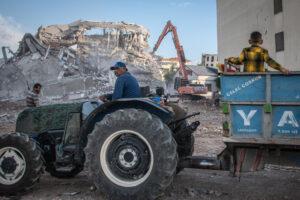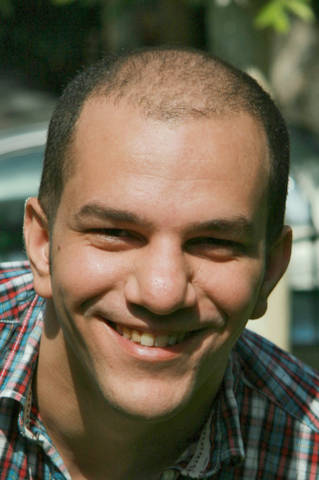Egyptian football violence: Between hooliganism and state thuggery
By Osama Diab
The deadly battle of Port Said may be another attempt to make a return to a police state the most attractive option for Egypt.
Friday 3 February 2012
Since the violence erupted in Port Said on Wednesday night, leaving more than 70 dead, debate in Egypt has centred on whether it was deliberately plotted by police to get back at the fans, or was simply a case of football hooliganism – the kind we see all over the world (as Field Marshal Hussein Tantawi, head of the ruling military council, said in a TV interview after the tragedy).
It is probably a mix of both. In an atmosphere of brutal rivalry between the Cairo and Port Said fans, football violence comes as no surprise.
But the Ultras football fans, known for their anti-establishment behaviour, have taken part in many of the clashes with police in and around Tahrir Square during the last year. Young and excited, they always formed the front line and acted as protectors against the onslaught of security forces. They have also brought the revolution to football stadiums and turned its stands into a political battlefield.
So it is also very likely that the police didn't think of the Ultras as worthy of their protection or interference. In the eyes of the police, they are the enemy, and a bunch or worthless teenage hooligans.
The Egyptian state is more than capable of successfully securing a football match given the vast size of the army and police forces. I have been to Egyptian stadiums dozens of times and, typically, heavy security is used to make it virtually impossible for opposing fans to clash, even outside the stadium, let alone invade the pitch.
Egypt's security forces successfully maintained order during the tense parliamentary elections, in which almost 30 million voters participated, so how could they possibly fail to keep a football match with 20,000 fans under control? Clashes between Al-Ahly and Al-Masry in Port Said have turned violent before and extreme security measures are normally in place to prevent clashes from exploding.
On the other hand, most stadiums in Egypt have very poor or non-existent safety measures – with the result that if serious trouble does break out it can easily turn deadly.
This inefficiency of the security forces is a result of a police-state culture that lacks accountability: officers know they will not have to face any consequences for their actions.
Just one week after a partial lifting of the 30-year-old state of emergency, the Port Said violence raises many questions about the police. Are they unable to do their jobs without resorting to outright brutality, or are they virtually on an unspoken strike to blackmail the public into asking for the return of a police state?
The latest deaths are also seen as yet another attempt to turn people against the revolution: to make them believe that Egyptians are not ready for democracy, as former vice-president Omar Suleiman stated a few days before Hosni Mubarak stepped down. The president, too, had claimed that the choice was between himself and chaos. But we must realise that democracy is different from lawlessness. No society can function in a complete absence of law and order.
There is clearly more to the Port Said tragedy than everyday football hooliganism. It may pose the biggest threat so far to military rule in Egypt, or it may help the military to become even more entrenched. It could go either way, depending on how the struggle for democracy unfolds in the coming days and weeks.
This column first appeared in The Guardian‘s Comment is Free on Friday 3 February 2012. Read the related debate.



Khaled yes, it’s a great
book. It’s an anthology of his reports from troublespots around the
world, when he was sole foreign correspondent for the Polish press
agency and witnessed just about everything going on. I love his writing.
Lot of Egyptians where I am, let’s see what they say.
Very sad! Not familiar with the Soccer War. Is it good?
tragic. Reminded me too of Ryszard Kapuscinski’s The Soccer War (Honduras v El Salvador)